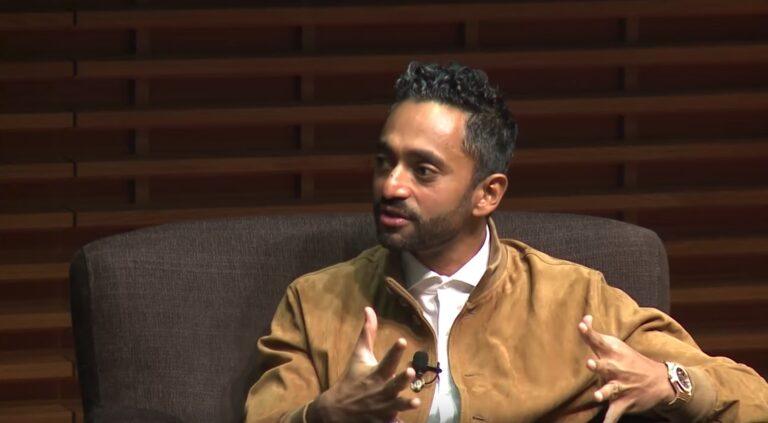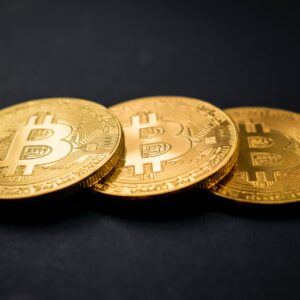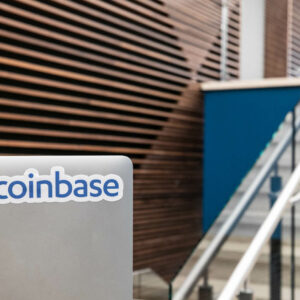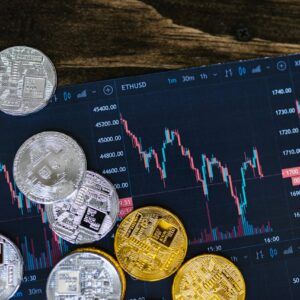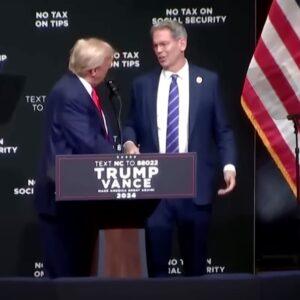On Tuesday (May 12), billionaire venture capitalist Chamath Palihapitiya, who is the founder and CEO of investment firm Social Capital, as well as Chairman of spaceflight company Virgin Galactic, gave an interview during which he talked about Bitcoin.
At the end of an interview on CNBC’s “Squawk Box”, co-anchor Joe Kernen asked Palihapitiya to comment on legendary macro investor Paul Turdor Jones II’s recent interest in Bitcoin and saying that he has 1-2% of his assets (not clear if he meant personal assets or those of hedge fund “BVI Global Fund”) in Bitcoin.
“Now you’re seeing a lot of lines of different thinking converge.
“So when we started to believe in the long-term value of Bitcoin, it was as a store of value, and it was that schmuck insurance that you kept under the mattress, and there was a small cohort of us that have believed this for like almost the last 10 years now…
“But when you have people like Paul Tudor Jones, sophisticated market participants who don’t necessarily come to it from that perspective,… now all of a sudden even he is looking at Bitcoin and the reason is because we are in this massive deflationary spiral and you have to figure out how to protect yourself.
“And so, however you think about it, from a classic economic theory or the schmuck insurance where you’re somewhat skeptical of the established governing masses, it is important that we have a hedge — a non-correlated hedge — and I still struggle to find anything that is as uncorrelated to anything else and to everything else than bitcoin.
“And I think that, you know, if we see it have its day, it’s a moment where you’re going to wish that you had just bought the 1% and just kept it.”
Kernen also asked Palihapitiya about Bitcoin in an interview on Squawk Box back on February 26.
This is what Palihapitiya said about Bitcoin back then:
“I would really like Bloomberg to take this article that I wrote for them in 2013 out of their paywall. Basically, you know, my view at the time, which I held since… is that everybody should probably have one percent of their assets in Bitcoin specifically.
“I still believe that today, and I think it is just a fantastic hedge.
“If you go back to the conversation this morning, when you see the amount of leverage the financial industry is running and you think about all these dislocations and all these exogenous things that are happening that you can’t predict, there’s a lot of risk to the downside, and it would be great that an average individual citizen of any country in the world has an uncorrelated hedge.
“And I’ve said this repeatedly at nauseum on the show: every financial instrument is correlated… except Bitcoin.”
Kernen then reminded Palihapitiya that Warren Buffett had said earlier this week that Bitcoin has zero intrinsic value.
Palihapitiya responded by saying:
“I think he’s an exceptional person. I’ve learned an enormous amount both from afar and the few interactions I’ve had with him. He is completely wrong and outdated on this.”
Uncorrelated assets are important in investing because they allow you to diversify your portfolio.
Palihapitiya is not, of course, the first person to think of Bitcoin as an uncorrelated (or non-correlated) hedge, or mostly uncorrelated hedge over the long-term.
For example, on 26 December 2018, Anthony Pompliano (aka “Pomp”), Co-Founder and Partner at Morgan Creek Digital Assets, said during an interview on Squawk Box:
“If you look at the correlation between digital assets and the S&P 500 over the last 180 days, it’s at zero. If you look at it compared to the dollar index, it’s near zero. It has proven to be non-correlated, and I expect that to continue.”
And more recently, on March 17, during the current COVID-19 pandemic, when some people were saying that Bitcoin is not a good safe haven asset because during this crisis it has been showing a moderate amount of positive correlation with the S&P 500, Pompliano said:
Bitcoin is basically flat today and the stock market is down double digits.
Don't hear many people yelling about “BITCOIN IS CORRELATED!” today.
Truth is correlation doesn't matter over short periods of time.
Over months and years, Bitcoin remains a non-correlated asset.
— Pomp 🌪 (@APompliano) March 17, 2020

